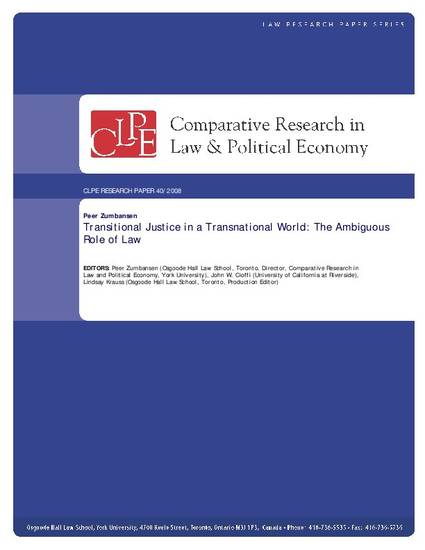
- Law & Development,
- Law of Occupation,
- Memory,
- Transitional Justice,
- Transnational law
In situations of military, political or economic transition, the reassessment of the role of law in the transition process becomes a crucial site of a people's or a nation's negotiating the past, present and future. Allusions to a tabula rasa or an annee zero after traumatic collapses of societal order, however, turn into ill-fated attempts to address the challenges of confronting the past when building the future. The law's concern with nations that struggle with transition expresses itself through hybrid concepts such as transitional or post-conflict justice, restorative justice, or reconciliation. This paper revisits these instantiations and places them in the context of an increasingly transnational discourse on transitional justice. In light of the wealth of law and non-law responses to past injustice around the world today, transitional justice emerges as a form of transnational legal pluralism, highlighting the parallels of regulatory challenges confronting transition and established regimes alike.
Available at: http://works.bepress.com/peer_zumbansen/11/
